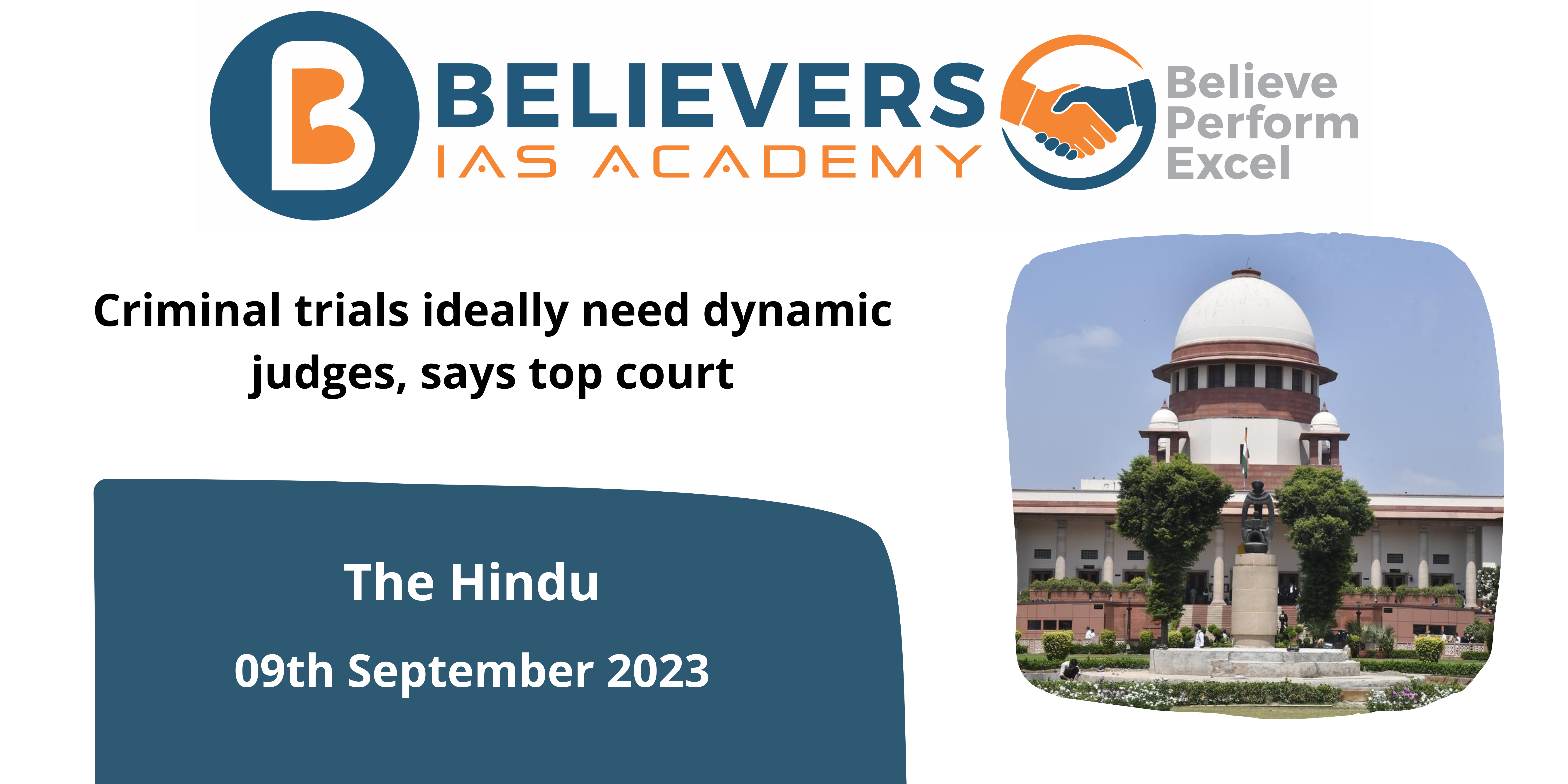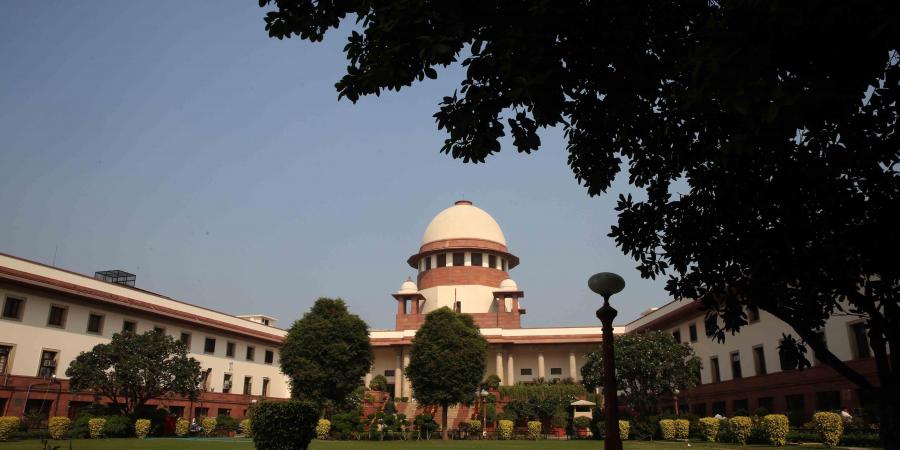Criminal trials ideally need dynamic judges, says top court
Context
The Supreme Court has stated that aggressive and dynamic judges, as opposed to hesitant or taciturn ones, are preferred in criminal proceedings.
What is the background behind the observation of the top Court?
- The verdict relates to an appeal made by a man who was sentenced to death for the rape and killing of a 10-year-old.
- Both the trial judge and the public prosecutor failed to address several discrepancies in the case.
- Even during the appeals procedure before the Patna High Court, the court’s failure to address these anomalies was deemed “shocking” by the Supreme Court.
What was the court’s recommendation on such incidents?
- The Supreme Court underlines the necessity of judges participating actively and dynamically in criminal proceedings.
- Judges who are reserved or taciturn and who keep quiet throughout the trial are not thought to be the best for attaining the purpose of criminal justice.
Which act gives the power to Judges to question the witness?
- Judges may examine witnesses or parties at any time, in any format, and about any fact, relevant or unrelated, according to Section 165 of the Indian Evidence Act. Judges have the authority to demand the production of any record or object. Assuring “complete justice” is the aim of this section.
- For the sake of justice, a court may also question, call for a recall, or re-question any witness. A court, however, cannot order a party to question a specific witness.
- The fundamental goal of Section 165 is to guarantee that, regardless of procedural limitations, the goals of justice are achieved.
What happens if the judges remain inactive in the criminal court?
- Injustice: Justice miscarriages could result from inactive judges’ failure to fully engage with the case. They could overlook important evidence, conduct ineffective witness interviews, or fail to consider legal arguments that might clear the accused or defend their rights.
- Unreliable Verdicts: Inactive judges may render judgments based on insufficient or incorrect evidence, which could provide unreliable trial results. This may lead to innocent people being exonerated or to erroneous convictions.
- Impaired Due Process: An inactive judge may not make sure that the rights of the defence and the prosecution are honoured when it comes to due process. This can involve concerns with the evidence’s presentation, protests, and the defence of the defendant’s rights.
- Loss of Public Trust: The public’s confidence in the legal system may be damaged if judges appear uninterested or inert during trials. The faith in the rule of law may be undermined if citizens believe the system to be unfair or ineffectual.
- Inefficiency: The judicial system may be less effective if judges are not active. Trials could go on longer than required, creating a backlog of cases and delaying the administration of justice.
- Re-Trials and Appeals: When an inactive judge’s rulings are thought to be unfair or legally deficient, it may necessitate re-trials and appeals, adding more strain to the court system and prolonging proceedings.
What is the way forward from this situation?
- Judicial Education and Training:
-
-
- Judges should receive continual instruction and training to improve their understanding of criminal law, procedure, and evidence.
- Training programs ought to include a strong emphasis on the value of active participation, effective questioning, and upholding an impartial and fair attitude.
-
- Performance Assessment:
-
-
- Implement performance evaluation tools for judges to evaluate their performance throughout criminal proceedings.
- To find areas for improvement, encourage frank criticism from legal professionals, such as prosecutors and defence lawyers.
-
- Clear expectations and guidelines:
-
-
- Establish precise rules and criteria for judges’ participation in criminal cases.
- Stress the value of active engagement, objectivity, and conformity to legal requirements.
-
- Support from peers and mentoring:
-
-
- Promote mentoring programs where senior judges can assist and mentor junior judges who hear criminal cases.
- Encourage judges to work together and assist one another to share ideas and best practices.
-
- Transparency and Accountability:
-
-
- Encourage transparency in judicial judgments by making verdicts and sentencing available with written justifications.
- Hold judges responsible for their actions and judgments using the necessary controls, such as ethical oversight.
-
- Technology and Case Management:
-
- Implement cutting-edge case management tools and technology to speed up court procedures and shorten wait times.
- Utilize technology to speed up the trial process and simplify the presentation of the evidence.





